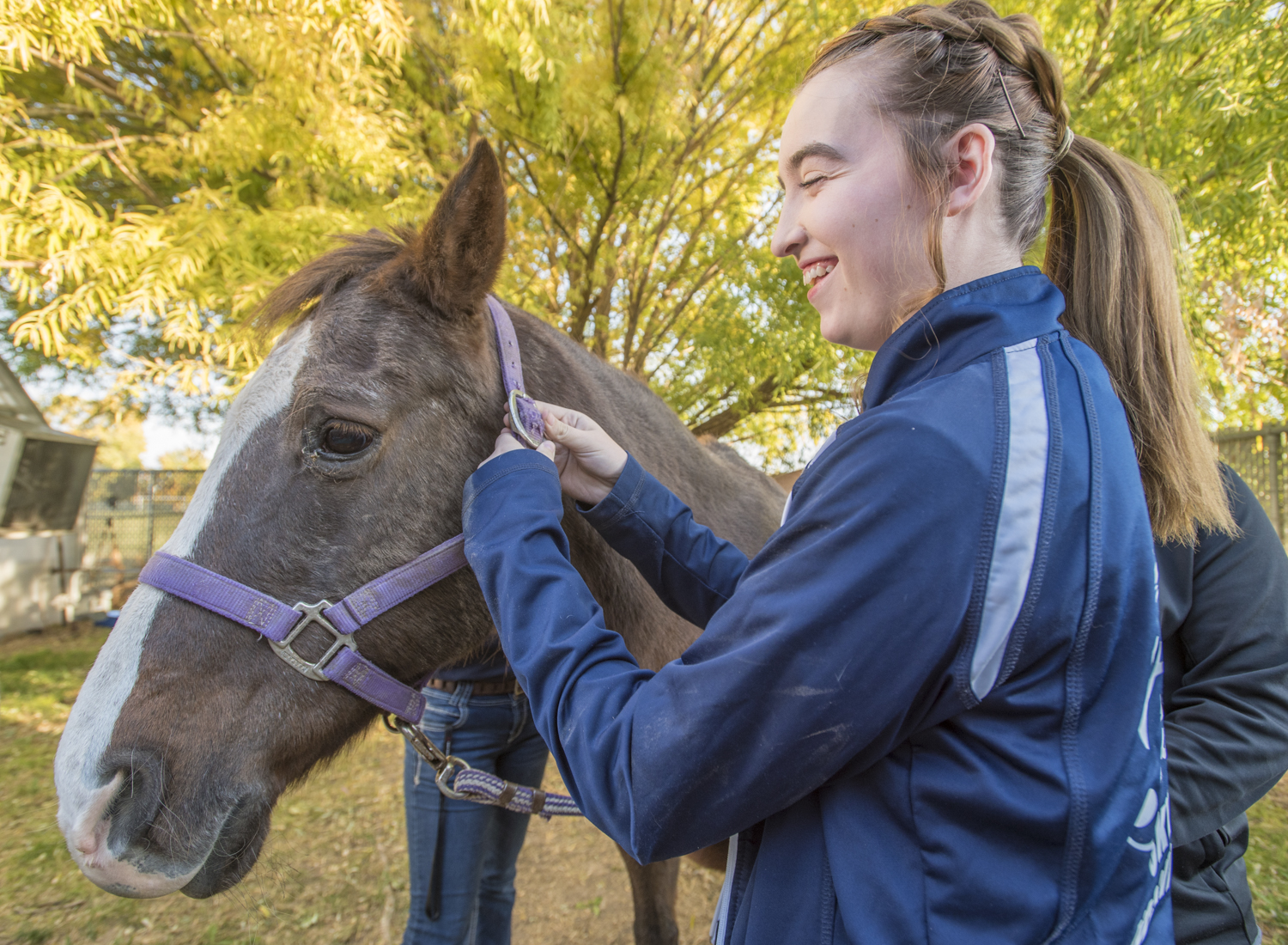9th Grade: Here's to new adventures.
Get a strong start by studying hard, participating in class, and asking for help when you need it. Taking part in extracurricular activities can increase your chances of getting into college, qualifying for training programs, and getting a job after high school.
Start exploring now!
Talk about your interests and goals for the future.
Connect with people who can offer advice and help you make important decisions.
Start talking with your family about what you might want to do after graduation. Discuss your interests and the things you’re good at. Talk to your friends about their goals and compare notes.
Next Steps
- Be sure to meet with your guidance counselor at least once this year so they know what you’re planning and can provide you the best help possible. Not sure what you should be discussing? Check out this Next Steps Idaho guide: Talking to Your Counselor – Questions to Consider in 9th, 10th & 11th Grade.
- Make a point of talking to your family or a family friend about their career path. Ask them how they ended up with the job they have now. Did they always know what they wanted to do? What training did they need? Tell them what you want for your future and ask for their advice.
- Pop into a career and technical classroom at your school, maybe identify students you could talk to after the bell rings, and get their take. Ask the instructor about the kinds of training opportunities and careers these classes can lead to after high school.
Do all that you can to make good grades.
Your grade point average (GPA) starts to count for graduation requirements and college and scholarship applications in 9th grade.
A bad semester can bring it down and a good semester can bring it up. You’ll need to keep a close eye on your GPA from here on out. This means doing your best work in every class, and asking for help when you need it.
Next Steps
- Know the GPA requirement(s) for your future plans. Whether you’ll be getting a job after high school or pursuing more education, schools and training programs have varying standards. If your GPA is low, you’ll need to score higher on entrance exams to get into college.
- Learn how to develop good study habits and test-taking skills.
- Read as much as you can outside of class. Explore Goodreads’ “9th Grade Reading List” and make sure you’re challenging yourself with the right stories. Find books about careers that interest you. For example, if you are considering healthcare, check out a book about a famous doctor or nurse.
Take classes that will count toward college and career.
Consider career technical education (CTE), dual credit, advanced placement (AP), or technical competency credit opportunities that may be available to you in high school.
The state has made $4,125 available to every public school attending student in grades 7-12. These funds can be used to earn college credits, obtain an associate’s degree, or achieve professional certification in a technical area while you’re still in high school.
Next Steps
- Look into the career-technical programs offered at your high school or at others close by.
- Ask your guidance counselor or CTE instructors about advanced opportunities like dual credit courses or technical competency credits that can reduce the time (and money) it takes to earn a college diploma.
- Some Advanced Opportunities take three years to complete. Talk to your guidance counselor about pathway programs to make sure you get started in time.
- Consider taking an online course (extra) over the summer or winter break to keep up your momentum in subjects you find challenging, or take a look at what Khan Academy has to offer.
- Find out what computer classes are available at your high school. Most careers will require you to have at minimum some word processing, basic database, and spreadsheet abilities.
Get involved in extracurricular activities.
Make friends. Protect yourself from burnout. Explore the world outside of school. The benefits of clubs, teams, organizations, and after-school jobs extend far beyond their reputation for building resumes or applications.
Joining a club or CTE organization, playing a sport, participating in a school play or volunteering can all help set you apart when it’s time to apply to school, for scholarships, and for a job. Extracurricular activities also give you the chance to explore your interests and find out what you’re good at. Perhaps you’ve already found your passion, or perhaps it’s time to try something new!
Next Steps
- Visit the Idaho High School Activities Association website to learn more about the clubs, sports, and activities offered at schools throughout Idaho.
- Consider joining one (or more) of the seven career and technical education (CTE) student organizations.
- Learn more about volunteer opportunities in your area.
- Care about something that doesn’t have representation at your school? Work with trusted teachers and administrators to start a new club or team that will allow you to share your interests with others.
Seek out mentoring and support.
If you think you might be falling behind or you just need some extra guidance or encouragement, go after the help you need.
Whether you talk to a teacher, counselor, advisor, or mentor about your academic future, career options, or challenges with classwork, there are so many resources and people eager to help you plan for the future and succeed in the present.
Next Steps
- Check out this guide for first-generation college students and connect with programs that can help you understand and explore your options
- Think through the answers to some of these questions and connect with a counselor to discuss how they can help.
- If you’re concerned about your grades, talk to your teachers first. They can extend deadlines, address difficult learning conditions, allow you to retake exams, and/or connect you with various options for tutoring.
Know the facts and explore your options.
Whatever your career and salary goals, chances are they will require some education or training after high school.
Everyone learns and gains experience as they grow, regardless of their choice to pursue additional (formal) education after high school. People typically earn more in direct relation to the years they spend in college or immersed in technical training, but higher ed isn’t the only way to guarantee financial or career stability. No matter what you decide, keep learning
Next Steps
- Start thinking about how much money you will need to make to live the kind of life you want. Use the Next Steps Idaho “Plan Smart” tool to learn how your choices can affect the salary you’ll need to earn.
- While college is one option, there are many other types of opportunities that help you get education and training for a rewarding career. Some, like apprenticeships, even offer a salary while you train for your career.
- While your career goals might not be focused on earning lots of money, most college graduates earn twice as much in their lifetime as those with only a high school diploma. Put it into perspective with this infographic from The Idaho State Board of Education.
The will, the way, and how to pay.
If you're planning on going to college or getting additional career training, you can definitely find a way to pay for it.
You just need to have a plan. And making that plan starts now.
Next Steps
- Get a sense of what your future education and training might cost, for real. Don’t be scared. Knowledge is power.
- Become familiar with the different options for Understanding College Costs.
- You or your parents may want to consider opening an IDeal 529 savings account. These special accounts help you save, offer tax advantages, and can help your money go further in paying for educational expenses.
- Consider taking a personal finance class at your high school. You will learn about student loans and basic financial management.
You’ve got choices!
Continue to explore post-high school opportunities. The more you understand now, the easier it will be to make decisions as you get closer to graduating.
Life after high school might mean going to a four-year college or enrolling in a technical training program or figuring out a way to continue your education while you work.
Next Steps
- Learn more about apprenticeships.
- Consider the benefits of going to community college.
- Figure out if the career you want requires an associate’s, bachelor’s, master’s, or doctoral degree and start to look at what Idaho’s schools have to offer.
- Look into Idaho’s technical programs (once referred to as trade schools), many of which can be started in high school and continued at the college level or lead to professional certification.
- Research career opportunities in the military, where you can serve, get career training and earn money to help pay for college
What’s in Store
Next Year
Next year, you’ll start to focus on how possible majors or training programs can lead to the career of your dreams and figure out how to get there.



